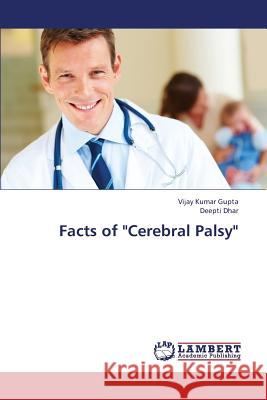Facts of Cerebral Palsy » książka
Facts of Cerebral Palsy
ISBN-13: 9783848427840 / Angielski / Miękka / 2013 / 64 str.
Introduction: Cerebral palsy (CP) is one of well-recognized neurodevelopmental conditions, beginning in early childhood and persisting through the lifespan. Statement of Question: Does any relationship exist between different ages of mother with type of cerebral palsy. Does any relationship exist between the birth environment and the type of cerebral palsy. Does any relationship exist between the gestational age and type of cerebral palsy. Conclusion: In preterm infants spastic CP is predominant. In term infants the non-spastic form of CP is more prevalent than in preterm infant and doctor reduces the risk of prevalence of cerebral palsy in most common type of CP in diplegic group, the majority of infants with CP were born at term which shows that CP is mainly an issue of term infants and risk of CP in males was higher than that in females.
Introduction: Cerebral palsy (CP) is one of well-recognized neurodevelopmental conditions, beginning in early childhood and persisting through the lifespan. Statement of Question: Does any relationship exist between different ages of mother with type of cerebral palsy. Does any relationship exist between the birth environment and the type of cerebral palsy. Does any relationship exist between the gestational age and type of cerebral palsy. Conclusion: In preterm infants spastic CP is predominant. In term infants the non-spastic form of CP is more prevalent than in preterm infant and doctor reduces the risk of prevalence of cerebral palsy in most common type of CP in diplegic group,the majority of infants with CP were born at term which shows that CP is mainly an issue of term infants and risk of CP in males was higher than that in females.











